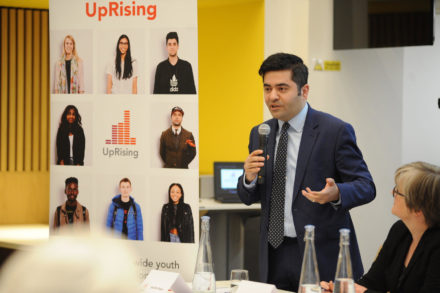By Victoria Lindrea & Francesca GillettBBC News
- 3 February 2020
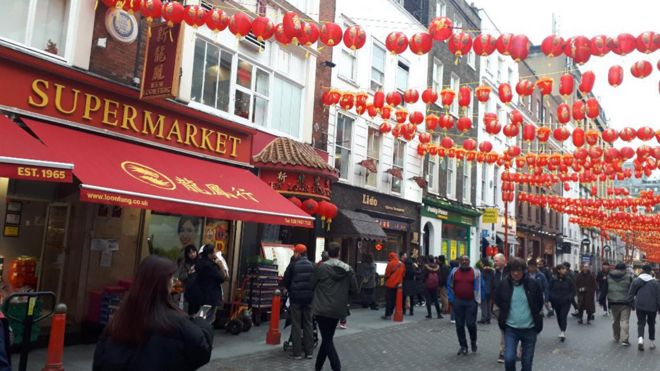
It’s Sunday lunchtime in London’s Chinatown, the streets are strewn with paper lanterns in traditionally lucky red, but the restaurants – normally clattering with diners – are unusually quiet.
“It’s a hard time,” says Martin Ma, general manager at the Jinli restaurant in Newport Place. Last weekend’s celebrations for Chinese New Year are long gone and there appears to be little appetite for food or festivities.
The confirmation of the first cases of the new coronavirus in the UK on Friday brought “immediate cancellations”, Mr Ma tells BBC News – with diners citing the virus as the reason.
Bookings at the restaurant’s four branches – two in Chinatown, one in Uxbridge and a fourth, in Birmingham – have fallen by 50%, according to Mr Ma, who estimates the flagship restaurant alone has lost £15,000 across the weekend.
“Normally, you have to book ahead – we have long queues going out of the door,” says Mr Ma – and there are pictures to prove it. Now, at peak lunchtime, it’s clear you could walk in off the street.
Indeed, Mr Ma said one Chinese tourist did just that on Saturday, choosing Jinli because it was “empty” and the lack of diners “made him feel safe”.
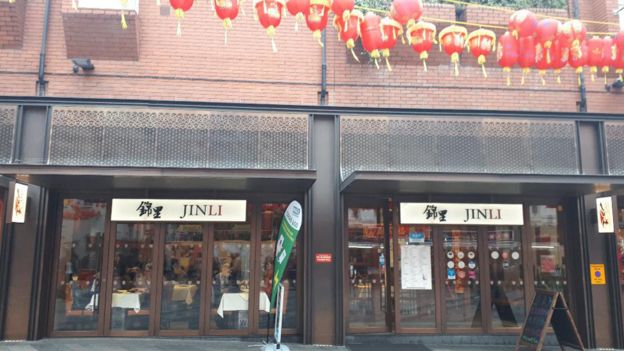
In Jinli, staff returning from China are kept home for at least 14 days, sanitiser gel is ubiquitous – but it’s not enough to allay the rising panic over the new coronavirus.
A fellow restaurant manager, down the road in Gerrard Street – who preferred to remain anonymous – agrees that his restaurant is very quiet.
“People are scared, they are staying away,” he says, sadly, gesturing towards Chinatown’s main thoroughfare, with its slow trickle of hapless tourists taking pictures of the enclave’s ornamental gate.
He says although he has not personally experienced any hostility, he knows many who have. People getting up and moving seats on the Tube; children being told to keep back from “foreigners”.
In New Loon Fung Restaurant, manager Cathy is more upbeat. “Most of our diners are locals, regulars,” says Cathy. “No problem here,” she insists.
But Mr Ma believes it will take at least a month before business returns to anything like normal.
There is no evidence or health warning that eating Chinese food is a risk for catching the virus, with the World Health Organization saying the virus mainly spreads through contact with an infected person. It says preliminary information suggests the virus may survive a few hours on surfaces.
Any prejudice against takeaways is “completely unacceptable and misinformed”, says Ibrahim Dogus, chairman of the British Takeaway Campaign.
Casual racism
Prejudice surrounding coronavirus has not just affected business owners; British Chinese people living in the UK also report being the target of racist abuse linked to the outbreak.
PhD student at Royal Holloway University Angela Chan, 46, says she was racially abused at Clapham Junction station in London by a man who rapped a rhyme at her which mentioned coronavirus, “slitty eyes” and “Chinese lies”.
“You will find Chinese people do experience racism and British people think we don’t,” she says.
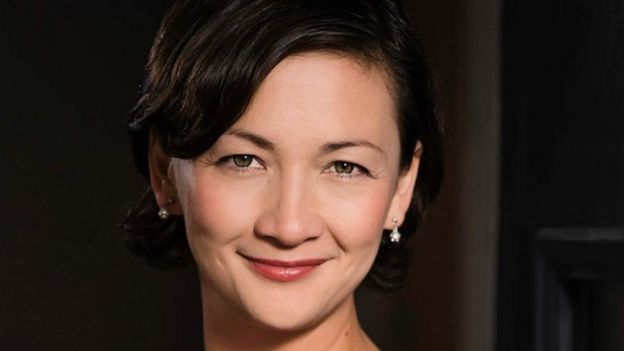
“It tends to be a bit different, it’s either casual or ‘funny’, and you’re expected to brush it off.”
Ms Chan, from Brentford, west London, says the outbreak “brings to the surface all the casual racism about people being dirty, or the things people eat”, with “blame” being placed on Chinese culture for the new virus.
“I think it’s tied in with deep-seated racism and fear of a community but it’s also to do with China’s rise in power. What we perceive to be a secretive culture,” she adds.
Paediatric nurse Lucy Li, 35, from Wanstead in east London, says her 11-year-old daughter “reported last week that children are telling each other to ‘stay away from all Chinese people because they are ill due to the virus'”.
Ms Li, whose parents came to the UK from China in the 1960s, adds: “Even when I went to the doctors, when I coughed I could see people moving away from me.
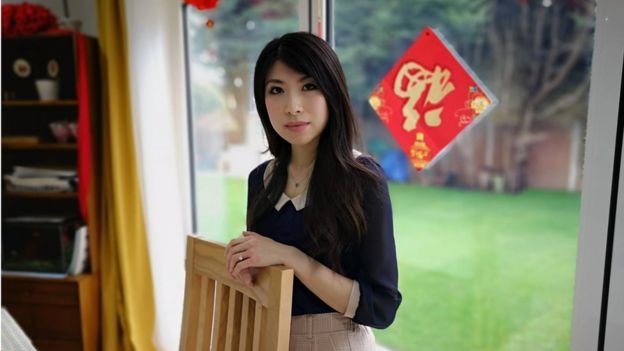
“I can’t walk down the street without unwanted attention. It’s degrading and enough is enough.”
She adds: “As a healthcare professional and working directly in the frontline of the NHS, I do sympathise with the public’s growing concerns.
“However, there is much misleading information in the media, which has now resulted in racial prejudice towards Chinese people who reside in the UK.”
Meanwhile, the Chinese Community Centre in Birmingham said: “Sadly, we’re hearing that abuse against Chinese people in the UK has increased since coronavirus has spread.”
Freelance journalist and Manchester University masters student Sam Phan says the recent outbreak of coronavirus has “put a spotlight on” racism against east Asians.
In an article published in the Guardian, the 23-year-old outlined overhearing several conversations which exposed the “stereotyping of all east Asians as a coronavirus risk”.
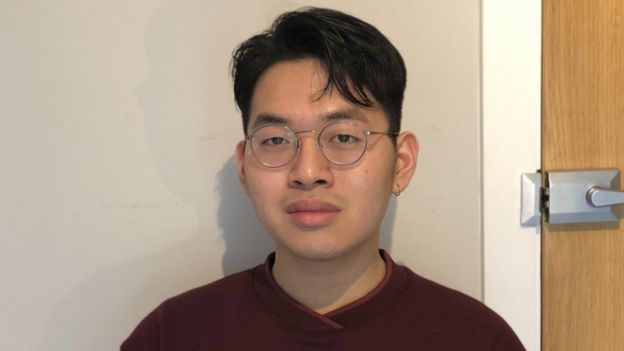
He tells the BBC the coronavirus has been viewed “as a Chinese virus” which has “then created this fear of east Asian and Chinese people”.
“As an east Asian British person it is not nice as people are treating you as if you’re disgusting,” he says.
When his article went live, he says he received racist comments suggesting he should “stop eating dog”.
“First of all, no British Chinese people eat dog – we eat fish and chips and what everyone else is eating.”
Mr Phan said: “The Asian experience of racism has often been overlooked. There aren’t as many voices out there calling it out.”
He was “extremely happy” to finally see headlines talking about racism against Chinese people, he added.




